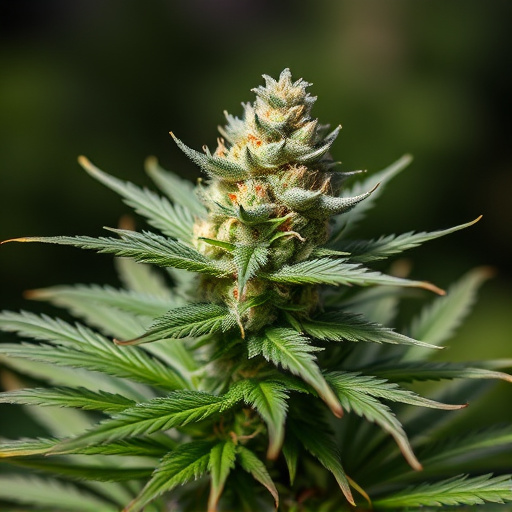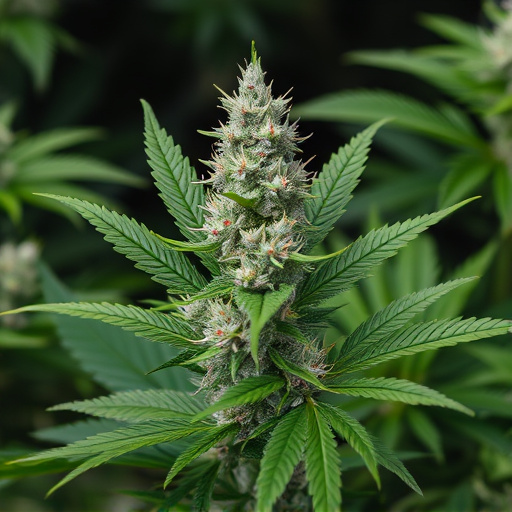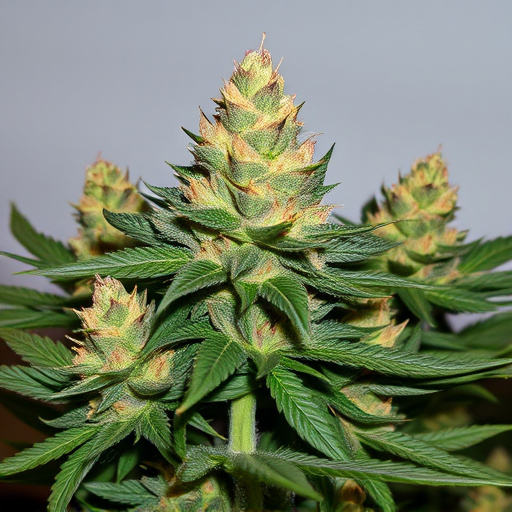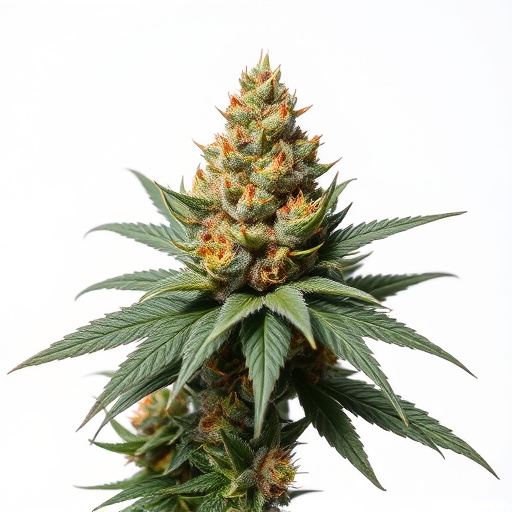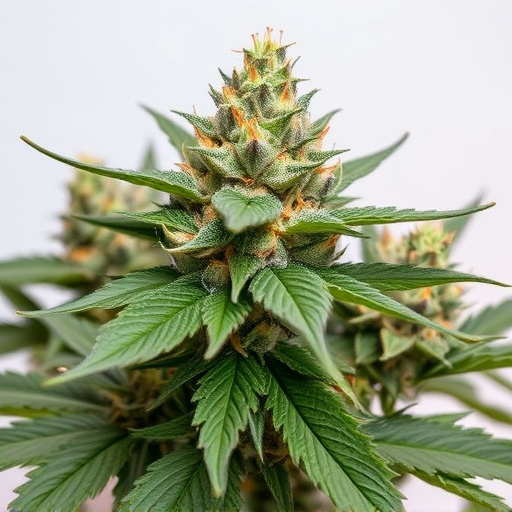Indica dominant hybrid strains, popular for their calming effects, carry significant health risks often overlooked by users. High THC levels can cause cognitive disruptions, exacerbate mental health conditions, trigger anxiety and paranoia, and lead to sleep disturbances. Regular consumption may result in physical side effects like dry mouth, red eyes, increased heart rate, impaired coordination, and respiratory issues. Individuals with pre-existing health conditions are particularly vulnerable to these adverse outcomes. Professional advice is crucial for managing risks associated with indica dominant hybrid strains.
“Explore the potential risks associated with indica dominant hybrid strains of cannabis flower in this comprehensive guide. While many advocate for its therapeutic benefits, understanding the health implications is crucial. From mental health considerations to physical side effects, this article delves into the psychoactive properties and long-term impacts on the body. Gain insights into navigating the world of indica hybrids, ensuring informed decisions regarding your well-being.”
- Potential Health Risks Associated with Indica Dominant Hybrid Strains
- Psychoactive Effects and Mental Health Considerations
- Physical Side Effects and Long-term Impact on the Body
Potential Health Risks Associated with Indica Dominant Hybrid Strains

Indica dominant hybrid strains, popular for their relaxing and sedative effects, come with potential health risks that are often overlooked. While they may provide short-term relief from stress and anxiety, prolonged use can lead to dependence and adverse side effects. Studies suggest that these strains can impact cognitive functions, affecting memory and concentration over time. The high levels of certain cannabinoids, such as THC, known for their psychoactive properties, can contribute to these cognitive disruptions.
Moreover, regular consumption of indica dominant hybrids may exacerbate existing mental health conditions or trigger new ones. Some users report increased feelings of paranoia and anxiety, especially in higher doses. These strains’ ability to induce a deep sense of relaxation can also lead to sleep disturbances when used close to bedtime, leaving users groggy the next day. As with any substance, understanding individual reactions and seeking professional advice is crucial for managing potential health risks associated with indica dominant hybrid strains.
Psychoactive Effects and Mental Health Considerations
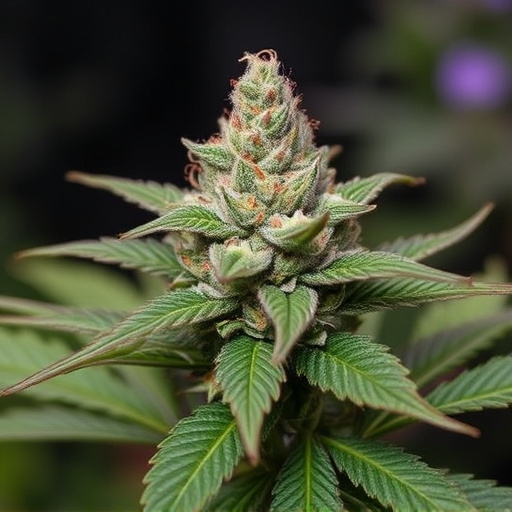
Cannabis flower, especially indica dominant hybrid strains, can have significant psychoactive effects due to the presence of tetrahydrocannabinol (THC), the primary psychoactive compound. While THC offers various therapeutic benefits for certain conditions, it’s crucial to consider its impact on mental health. High concentrations of THC can induce anxiety, paranoia, and psychosis in susceptible individuals. These mental health considerations are particularly important when consuming cannabis recreationally or using it for non-medical purposes.
Individuals with a history of mental health issues, such as depression, bipolar disorder, or schizophrenia, should exercise extreme caution. The effects of THC can exacerbate existing symptoms, leading to potential adverse reactions. Additionally, the interaction between THC and other substances can further complicate matters. Understanding these risks is essential for responsible cannabis use, ensuring that individuals make informed decisions about their well-being while navigating the potential benefits of indica dominant hybrid strains.
Physical Side Effects and Long-term Impact on the Body
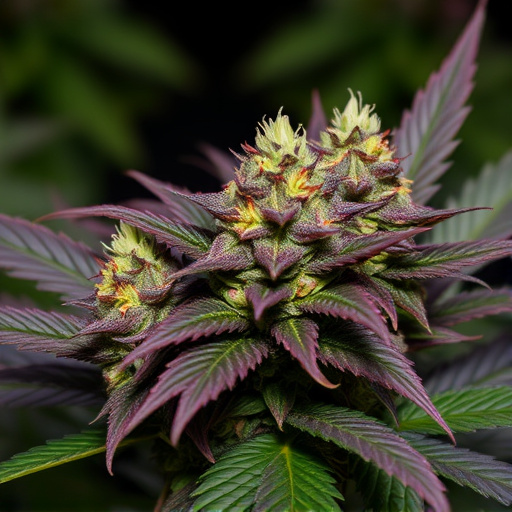
Cannabis consumption, especially among regular users, can lead to various physical side effects. Short-term impacts may include dry mouth, red or bloodshot eyes, increased heart rate, and impaired coordination. These symptoms are often more pronounced with higher concentrations of THC found in modern indica dominant hybrid strains. Long-term use poses additional risks, such as respiratory issues due to the inhalation of smoke, especially when cannabis is consumed in its smoked form. There’s also growing evidence suggesting that regular cannabis use may contribute to chronic lung conditions and exacerbate asthma symptoms. Furthermore, studies indicate potential links between cannabis consumption and cardiovascular diseases, including increased risk of heart attacks and strokes.
The effects on the body can be more profound for individuals with pre-existing health conditions. For instance, those with a history of mental health disorders like depression or anxiety may experience heightened sensitivity to cannabis’s psychotropic effects. Regular exposure to THC in indica dominant hybrid strains could potentially trigger or worsen these conditions. Moreover, long-term use has been associated with cognitive impairments, including memory and attention deficits, affecting both short-term and long-term memory retention.
While cannabis has shown potential therapeutic benefits, it’s crucial to be aware of the risks associated with indica dominant hybrid strains. These powerful plants can produce intense psychoactive effects, impacting mental health and leading to physical side effects that may have long-term consequences. Understanding these risks is essential for making informed decisions about usage, especially considering the growing accessibility of cannabis products. Remember that moderation and responsible consumption are key to navigating this complex landscape.

